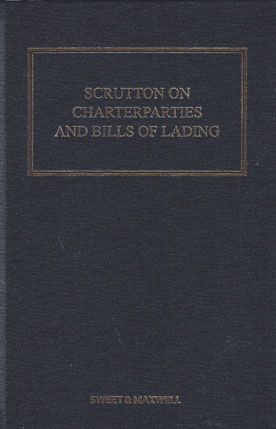
This is the leading statement of the principles behind charterparties and bills of lading, which is the area of law covering parties to the hire and chartering of ships, and the carriage of goods at least partially by sea.
First published in 1886, Scrutton has provided a first port of call for research when drafting contracts or dealing with disputes for generations.
NEW TO THIS EDITION
Case law covering key topics, including: